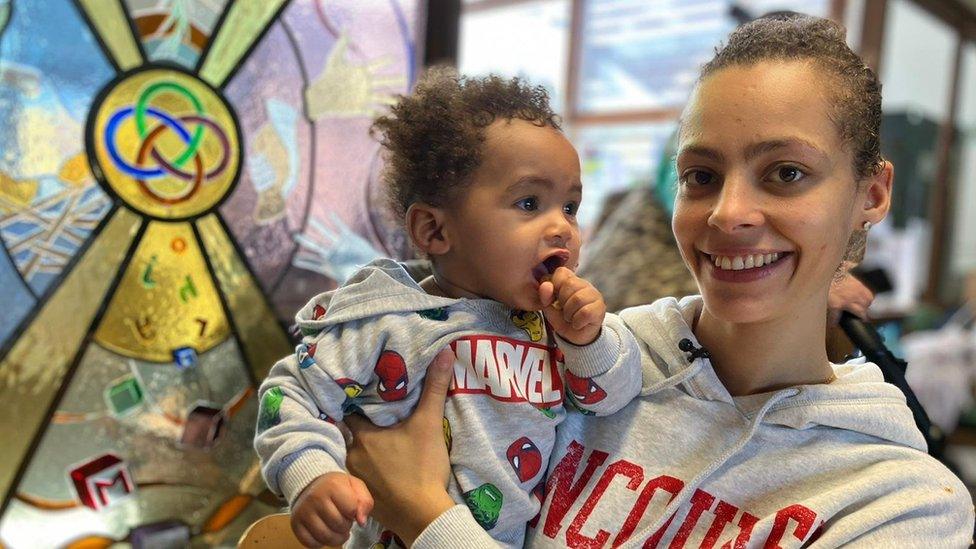Social housing tenants fear poverty as energy bills rise
- Published
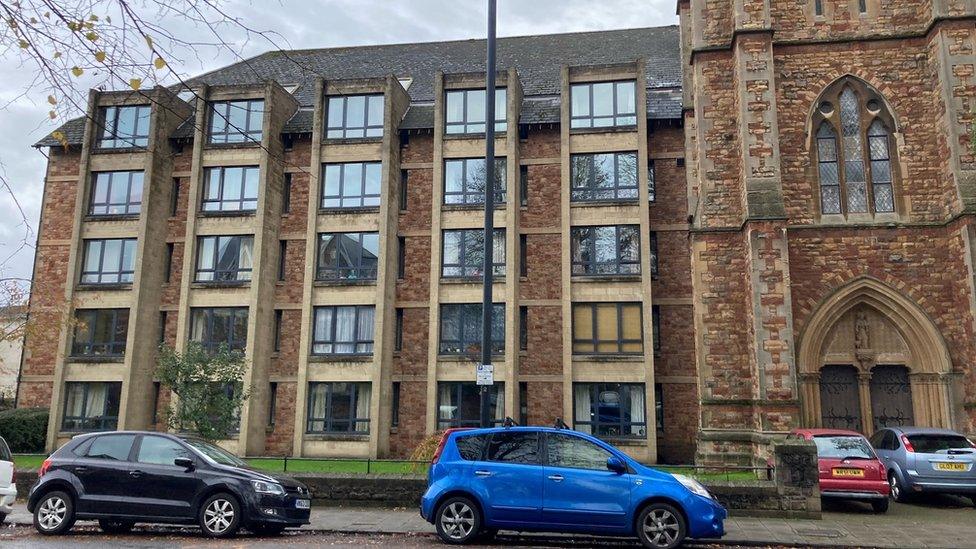
Emmanuel Court provides social housing for people aged 55 plus
Sheltered housing tenants fear falling into poverty after seeing their energy bills rise by more than 100%.
Emmanuel Court in Clifton is on a heat network and residents do not have individual meters, so cannot cut their costs by reducing their energy use.
Social care charity Brunelcare warned the situation facing residents this winter was the worst in recent history.
The government is offering support for heat networks similar to the energy rebate, but has yet to publish details.
Richard Boden, 78, who has lived at Emmanuel Court for 12 years, told BBC West that residents felt helpless in the face of energy prices rises.
The increases are lower than the 400% forecast before the government introduced a relief scheme, but Mr Boden warned bills would still be crippling for some.
"It's not a question of 'won't pay', it's that they can't pay," he said.
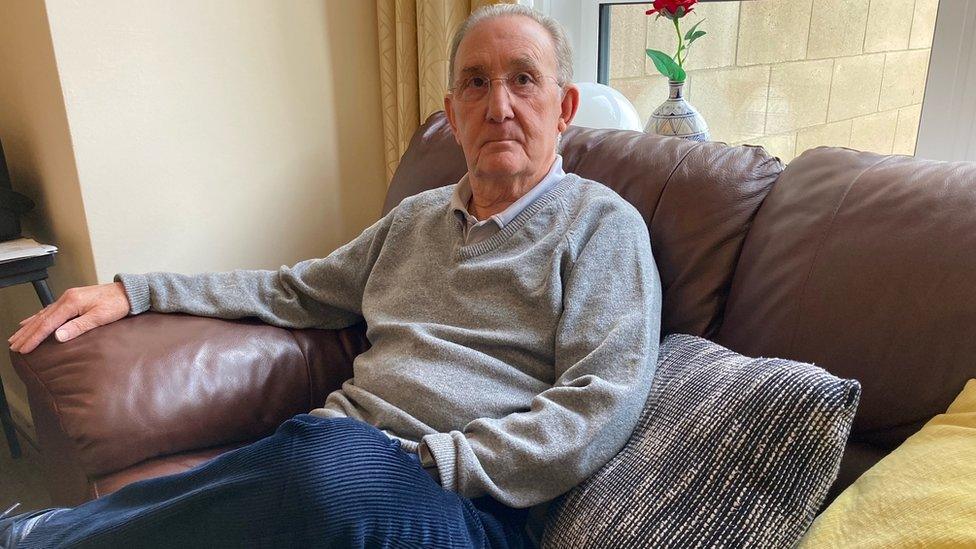
Richard Boden is trying to help residents at Emmanuel Court access financial support for their bills
Mr Boden's bills are due to increase from £27.25 to £56.20 per week, he said.
"There's been lots of news about the average person, but nothing has been said about us at all and we are in a worse situation.
"I've had a 60-year-old man crying on my shoulder," he added.
Mr Boden and his neighbour Patrick Quinn, 72, have set up a community group to try and help residents access support to pay their bills.
Mr Quinn said: "People are rightly angry and extremely worried and that's obviously going to take its toll on people's health."
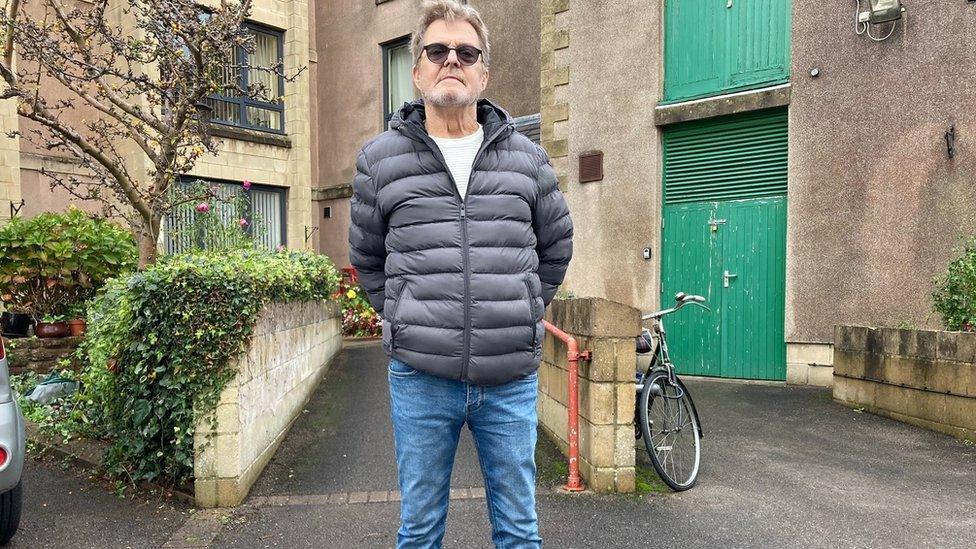
Patrick Quinn said spiralling energy bills were affecting his neighbours' mental health
Oona Goldsworthy, chief executive of Brunelcare, said the charity was looking into whether meters could be installed in individual flats, but warned it might costs hundreds of thousands of pounds.
She said there was real concern about what would happen once the relief schemes came to an end in March.
The charity set up a £20,000 hardship fund for residents that was designed to last a year, but the sum has almost been spent after only three months.
Ms Goldsworthy said the situation was "the worst I've known it".
She said Brunelcare had been set up to help families, left homeless during the Blitz, with the motto: "Stay alive, stay warm, stay fed".
"I can't believe we are coming back to that now, we shouldn't be here in the 21st century."
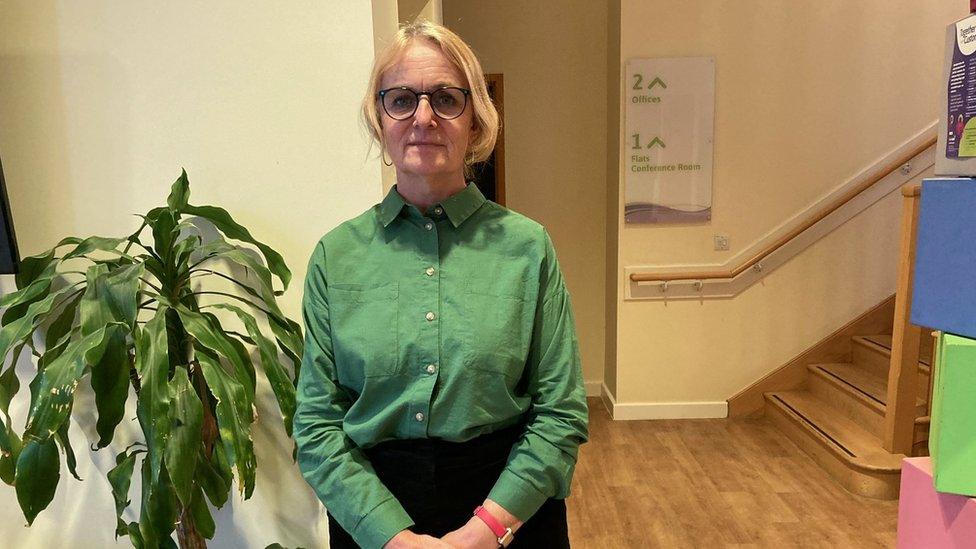
Oona Goldsworthy said the situation for Brunelcare residents was the worse she had ever known
The government has been promoting heat networks as part of its net-zero strategy, because one source of heat supplies all the buildings connected to the network rather than individual boilers.
Heat networks were also once a way of supplying cheaper energy to housing blocks, with housing associations acting as a commercial supplier for tenants.
A spokeswoman for the Department for Business, Energy and Industrial Strategy said: "People who use heat networks will receive help with their heating and hot water bills through the Energy Bill Relief Scheme.
"We passed legislation last week that means heat network suppliers must pass on savings they receive through the scheme.
"Those using heat networks will also receive a £400 discount on bills, or via an equivalent scheme for those without a domestic electricity meter.
"Most heat network consumers will also save money on their bills via reductions in the cost of electricity through the Energy Price Guarantee."
Stephen Knight, director of the Heat Trust, a consumer champion for heat network customers, said the details of the scheme had yet to be shared but pensioners and those on disability benefit, as well as people on low-income benefit or tax credits, should also be entitled to the government's Cost of Living Payment.

Follow BBC West on Facebook, external, Twitter, external and Instagram, external. Send your story ideas to: bristol@bbc.co.uk , external
Related topics
- Published19 October 2022
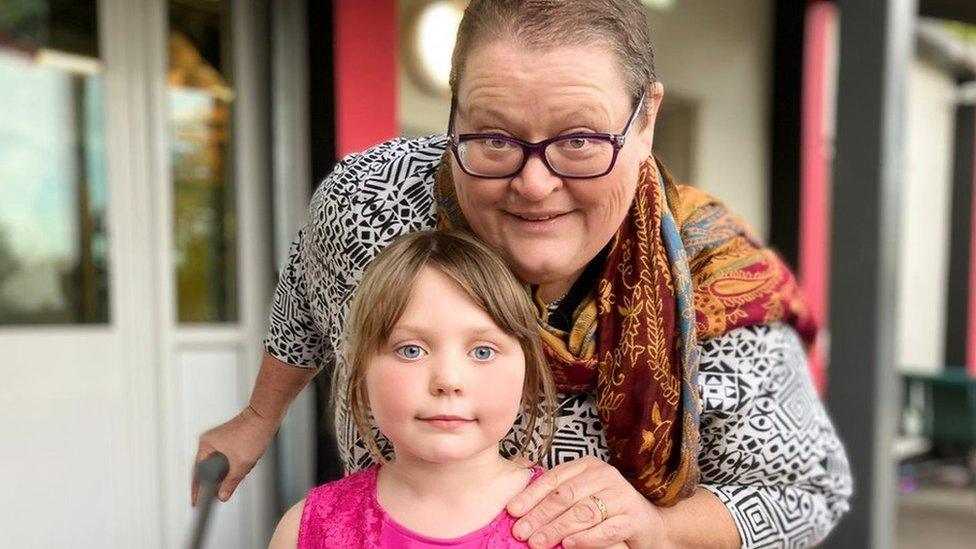
- Published18 October 2022

- Published12 October 2022
